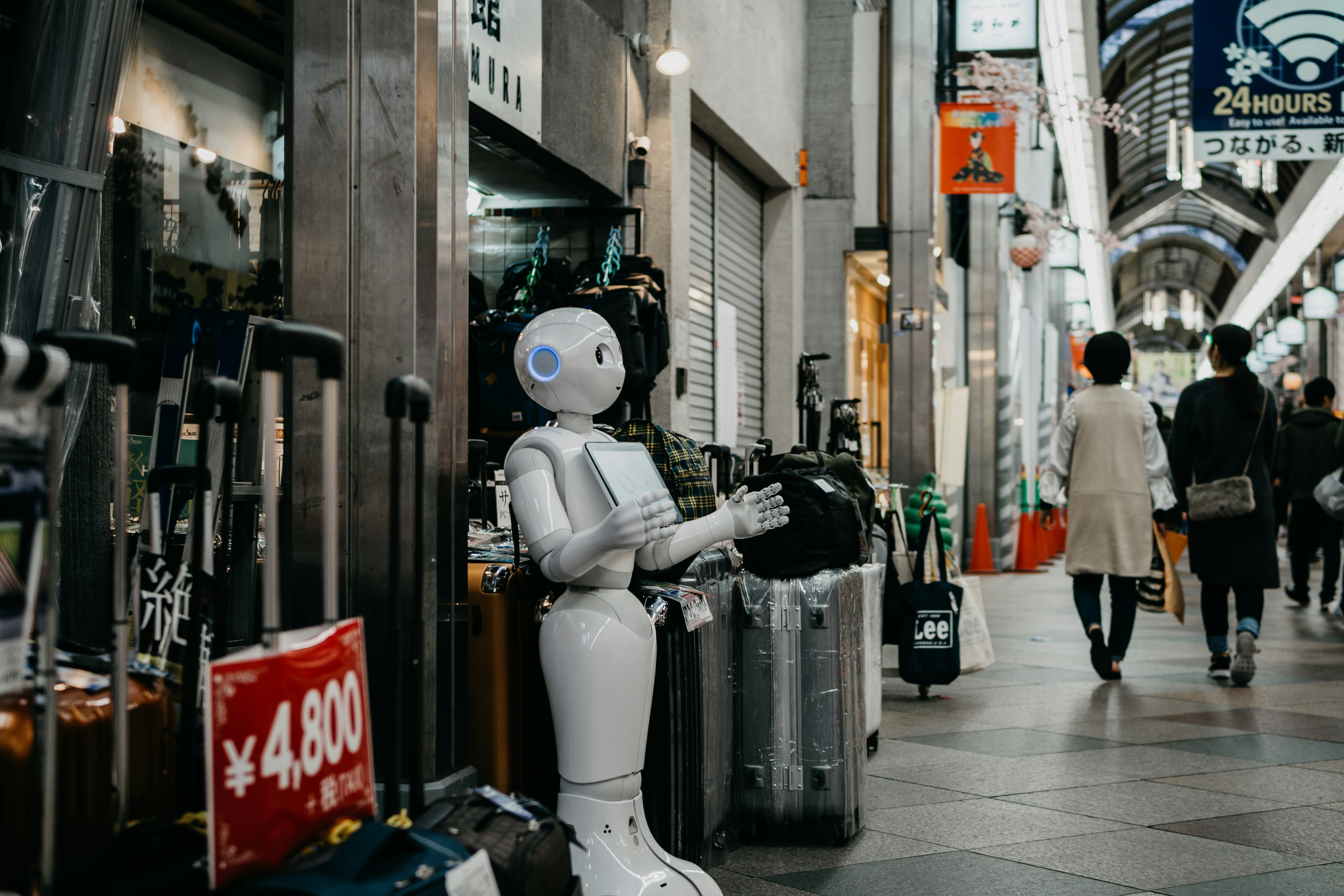How AI is Revolutionizing Travel Planning: A Deep Dive into the Future of Exploration
Table of Contents
- Introduction: The Evolving World of Travel Planning
- The Role of AI in Itinerary Creation
- Personalized Recommendations: Tailoring Adventures to Your Interests
- Time-Saving Benefits: Efficiency in the Modern Travel Landscape
- Current AI Trends Shaping the Travel Industry
- A Glimpse into the Future: How AI will Transform the Way We Travel
- TripyTrek: An Upcoming AI-Powered Travel Experience Platform
- Conclusion
1. Introduction: The Evolving World of Travel Planning
The advent of the internet transformed how we research and book our trips. Where once we relied on physical guidebooks, local travel agents, or word-of-mouth recommendations, we can now scour countless websites, read reviews on social media, and watch interactive vlogs. But we are on the cusp of yet another major transformation: Artificial Intelligence (AI).
AI is revolutionizing the travel industry, influencing how we discover destinations, assemble itineraries, and even interact with local cultures once we’ve arrived. We at TripyTrek, have a front-row seat to observe how AI is simplifying itinerary creation, personalizing recommendations, and saving time for travelers worldwide.
In this blog post, we’ll dive deeper into how AI is reshaping the travel landscape, examine the current trends, and explore what the future holds. We’ll also introduce you to TripyTrek, an up-and-coming AI-powered travel experience platform designed to streamline trip planning from start to finish.

2. The Role of AI in Itinerary Creation
2.1. Data Collection and Analysis
One of the biggest challenges modern travelers face is information overload. Hundreds of potential attractions, hotels, and dining options can exist in a single city. AI systems tackle this challenge by collecting and analyzing massive amounts of data in real time, such as:
-
Hotel and flight prices
-
Destination popularity trends
-
Seasonal crowd levels
-
Local event schedules
-
Weather forecasts
With this wealth of data, AI-powered platforms can generate dynamic travel suggestions catered to individual preferences. Rather than scrolling through countless webpages, travelers receive an automated, data-driven itinerary filled with the most relevant and updated information.
2.2. Automated Itinerary Builders
A practical application of AI in travel is the use of automated itinerary builders. These systems begin by asking travelers simple questions, such as:
-
What kind of experiences do you enjoy? (Nature, history, nightlife, culinary tours, etc.)
-
How long do you plan to stay?
-
Do you have specific dietary or accessibility needs?
By matching these responses to extensive data points—ranging from user reviews to geolocation services—AI-driven platforms construct comprehensive itineraries covering flights, accommodations, activities, dining suggestions, and even commute times. The result is a seamless travel plan that eliminates guesswork and ensures smoother journeys.
2.3. Real-Time Adjustments
Travelers rarely follow their plans exactly as scheduled. Arriving in a new city to find unexpected rain or encountering a public transit strike can derail even the most carefully planned itinerary. AI-driven applications can automatically detect such disruptions and suggest alternative activities or routes. Real-time updates and notifications help travelers remain flexible and adaptable without missing out on must-see attractions or wasting time figuring out what to do next.
3. Personalized Recommendations: Tailoring Adventures to Individual Interests
3.1. Learning Preferences
AI excels at learning from user behavior. The more travelers interact with an AI platform—by searching for specific types of experiences or skipping particular recommendations—the more refined and accurate its suggestions become. Similar to a streaming service that learns a user’s movie preferences, an AI travel platform learns preferences for hotels, cuisines, and activities over time.
3.2. Recommendation Algorithms
Behind the scenes, sophisticated recommendation algorithms analyze user data, ratings, and reviews to find the ideal destination match. These algorithms consider factors like:
- Budget range
- Preferred travel style (luxury vs. budget-friendly)
- Past trip history
- Traveler demographics (e.g., solo travelers, couples, families)
This approach ensures that every suggestion—from an offbeat museum in Tokyo to a secluded beach in Bali—is genuinely interesting and relevant.
3.3. Hyper-Personalized Experiences
Travel is moving beyond generic itineraries toward hyper-personalized experiences. Instead of recommending the same “Top 10 Attractions” to every tourist in Paris, an AI-powered system might suggest specialized cooking classes for a foodie or street-art walking tours for someone passionate about urban culture. By catering to unique interests, AI helps travelers craft meaningful, memorable trips that align with their passions.

Photo by Erwan Hesry on Unsplash
4. Time-Saving Benefits: Efficiency in the Modern Travel Landscape
4.1. One-Stop-Shop Solutions
Planning often involves jumping between multiple websites—from flight search engines to hotel booking platforms, Airbnb listings, local experience websites, and city tour providers. AI consolidates this process into all-in-one solutions. By using a single AI-driven platform, travelers can manage flights, hotels, tours, and dining reservations, saving time and reducing the hassle of juggling multiple browser tabs.
4.2. Instant Customer Support
Traditionally, encountering issues like flight cancellations or booking mix-ups meant spending hours on hold with customer service. AI-powered chatbots and virtual assistants now offer:
- 24/7 support
- Quick handling of routine inquiries
- Immediate escalation of complex issues to human agents
This real-time, round-the-clock assistance significantly reduces stress and saves time when resolving typical travel problems.
4.3. Automated Alerts and Notifications
Another major time-saver is the automated alert system integrated into many AI travel platforms. Whether it’s a special rate on a preferred hotel, an alert about a delayed flight, or a change in the itinerary due to weather, AI ensures travelers are always in the loop. These timely notifications empower travelers to stay flexible and make decisions on the fly, preserving valuable vacation hours that could otherwise be lost to confusion or last-minute schedule changes.
5. Current AI Trends Shaping the Travel Industry
5.1. Natural Language Processing (NLP)
Natural Language Processing (NLP) enables computers to understand and interpret human language in a more intuitive way. In travel, NLP powers advanced chatbots and voice assistants capable of parsing complex queries like, “Find me a beachside resort in Thailand for under $150 per night in June.” This conversational research approach enhances user experience by making travel planning feel more natural and less formulaic.
5.2. Predictive Analytics
From forecasting flight prices to anticipating surges in hotel rates, predictive analytics offers travelers a competitive edge. By leveraging historical data, booking patterns, and real-time demand indicators, AI can predict the best time to book flights, accommodations, or activities—often saving travelers hundreds of dollars in the process.
5.3. Image Recognition and Augmented Reality (AR)
AI-driven image recognition can identify destinations, landmarks, and even local flora or fauna through a smartphone camera. Meanwhile, Augmented Reality (AR) applications are on the rise, providing interactive city tours or museum guides that overlay digital information on real-world environments. Imagine exploring ancient ruins while a smartphone displays historical details, recommended walking paths, and hidden vantage points in real time.
5.4. Voice Assistants and IoT Integration
Voice assistants such as Amazon Alexa, Google Assistant, or Apple’s Siri increasingly handle travel tasks—from checking hotel availability to searching for top-rated restaurants. Combined with the Internet of Things (IoT), these assistants can connect to “smart rooms,” allowing travelers to control lighting, temperature, and even curtains with simple voice commands.

6. A Glimpse into the Future: How AI Will Transform Travel
6.1. Seamless Multimodal Transport
AI could revolutionize how people move from one place to another by creating an end-to-end itinerary covering all transport modes—planes, trains, buses, car-sharing, bikes, or on-demand shuttles. Travelers could:
- Purchase combined tickets in one transaction
- Receive real-time updates about each leg of the journey
- Get automatically rerouted to the next best option in case of unexpected delays
6.2. Fully Immersive Virtual Reality (VR) Previews
Some platforms already offer 360-degree videos or virtual tours of hotel rooms, but the future may bring fully immersive VR experiences. Travelers could “test drive” a trip before booking—walking through digital replicas of cities, hotels, and attractions. This technology would remove much of the uncertainty when choosing a new destination by offering a realistic preview.
6.3. Advanced Emotional AI
Emotional AI is another emerging frontier, where algorithms interpret feelings based on facial expressions, voice tone, or text sentiment. Future travel platforms might detect anxiety about flying and suggest stress-reducing travel options, such as direct flights, quieter airports, or longer layovers. This empathetic customization could transform how travelers plan and experience their trips.
6.4. Eco-Conscious and Sustainable Travel
AI can also guide travelers toward greener travel practices. By analyzing factors like carbon footprints, energy consumption, and local ecological impact, advanced platforms might recommend eco-friendly alternatives—such as booking a hotel with sustainable certifications or opting for trains over short-haul flights. This approach helps preserve the planet for future generations of adventurers.
7. TripyTrek: An Upcoming AI-Powered Travel Experience Platform
TripyTrek is an emerging platform designed with the evolving travel landscape in mind. The mission is simple but ambitious: to provide an entirely AI-driven experience that simplifies, personalizes, and enhances every stage of a traveler’s journey.
7.1. Simplifying Itinerary Creation
- Streamlined Data Collection: TripyTrek will gather flight prices, hotel rates, and user reviews from multiple sources, ensuring the most relevant and up-to-date information.
- AI-Powered Recommendations: By analyzing user profiles—travel dates, budgets, and interests—TripyTrek will propose custom itineraries that blend adventure, relaxation, and cultural experiences.
7.2. Personalizing Adventures
- Hyper-Personalized Suggestions: TripyTrek’s AI engine becomes smarter with each interaction, adapting to individual travel styles. Foodies can discover curated tours of street-food hotspots and cooking classes; art enthusiasts might explore exclusive galleries and local art walks.
- Adaptive Trip Updates: Whether extending a stay or rerouting because of weather, TripyTrek will re-optimize itineraries in real time, providing the best plan B options.
7.3. Saving Time and Money
- Predictive Analytics Engine: By using historical and real-time data, TripyTrek keeps travelers informed about peak booking windows, enabling them to secure the best deals on flights and accommodations.
- Single-Platform Management: Book everything—from flights to museum tickets—within TripyTrek. This intuitive interface drastically reduces research time and website-hopping.
7.4. Travel Companion for the Modern Explorer
- 24/7 AI Assistant: A smart chatbot will answer frequently asked questions, provide real-time flight updates, notify users of price drops, and highlight local events.
- Multi-Device Synchronization: Need to check plans on a phone, laptop, or smartwatch? TripyTrek syncs across devices, ensuring travelers stay informed no matter where they are.
TripyTrek aims to be at the forefront of deeply personalized, highly efficient travel solutions. By harnessing cutting-edge AI, the platform seeks to guide travelers in exploring the world smarter, faster, and with heightened excitement.
8. Conclusion
AI is revolutionizing travel planning in ways once unimaginable. From automating itinerary creation to personalizing recommendations based on unique traveler interests, AI-driven platforms are making trip organization simpler and more efficient. Travelers reap the benefits of time-saving features, cost-effective options, and immersive experiences tailored to their passions—whether that means culinary tourism, adventure sports, or cultural deep-dives.
Several current trends—including Natural Language Processing, predictive analytics, and IoT integration—are converging to deliver seamless, user-friendly travel experiences. In the near future, virtual reality previews, emotional AI, and sustainable travel planning may further reshape travel, allowing for deeper connections with destinations worldwide.
TripyTrek stands ready to pave the way for a new era of AI-powered travel. Through real-time updates, curated hidden gems, and an unwavering commitment to user-friendly innovation, the platform aims to provide a hassle-free, captivating experience—whether travelers are embarking on a quick weekend getaway or an ambitious multi-country trek.
As technology evolves, so does the way people explore. AI won’t simply change how trips are planned; it will influence why and where people travel, encouraging them to venture off the beaten path, embrace local cultures, and savor every moment on the journey. TripyTrek is committed to being a go-to resource that makes these experiences possible—one destination at a time.


